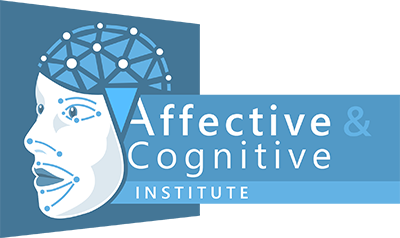Social Robots. An Interdisciplinary Compendium on Technological, Societal and Ethical Aspects
Overview
Social robots not only work with humans in collaborative workspaces – they start accompanying us into personal settings like home and health care. Does this imply that social robots should become more human, for example by enabling them to interpret and respond to human emotions? Should they even simulate emotions?
The book covers the phenomenon of social robots from the historic roots over today’s best practices to future perspectives. It is an interdisciplinary compendium: while focusing on aspects from computer science, it also covers disciplines like psychology, medicine, law, history, as well as arts and humanities. For developments like robots in health care and domestic areas, both technological and the ethical challenges are taken into account. Thus, the book creates both a compendium and a guideline, a design space for future developments in social robotics.
Benefits
Thanks to the support of AGYA, there is a budget for professional scientific proof-reading of every accepted chapter. In addition, there is an author recognition award of € 200 per finalized chapter.
Topics
Topics include, but are not limited to:
- Human-Robot-Interaction
- Affective and Cognitive Sciences for Socially Interactive Robots
- Context Awareness, Expectation, and Understanding of Intention
- Social Robots in various Domains (e.g. Domestic, Education, Health, Medicine, Sales, Entertainment)
- User Studies with Social Robots
- Interaction and collaboration among robots, humans, and environments
- Societal Acceptance (and Rejection) of Social Robots
- Socially appealing design methodologies
- Artificial Intelligence and Embodied Agents
- Autonomous Navigation and Locomotion
- Robotic Simulation, Artificial Emotion Simulation Techniques
- Mathematical Modeling and Simulation of Human Affective Behavior
- History of Robots and Automata
- Legal Perspectives on Social Robots
- Design Space for the Development of Social Robots
- Ethical Guidelines for the Development of Social Robots
- Lessons Learned from National or International Projects on Social Robots
Editor
Oliver Korn, Affective & Cognitive Institute, Offenburg University, oliver.korn@acm.org
Submission
In the first step, we invite researchers and practitioners to submit a 2-page abstract (max. 900 words) explaining the mission and concerns of their proposed chapter by August 15. We welcome extended versions of previously published papers. Author anonymity is not required in this step. Please use the Easy Chair submission system: https://easychair.org/conferences/?conf=socialrobotsspringer
or send the abstract to: socialrobotsspringer19@easychair.org
Important Dates
- August 25: Abstract Submission (max. 900 words)
- October 1: Notification of Abstract Acceptance
- October 25: Full Chapter Submission
- November 9: Review Results Returned
- November 30: Final Chapter Submission
- December 10: Scientific Proof Reading Completed
- December 22: Final Chapter Clearance by authors and recognition awards
All submitted chapters are peer-reviewed on a single-blind review basis (so you do not need to anonymize the text). Contributors may also be asked to work as reviewers.



